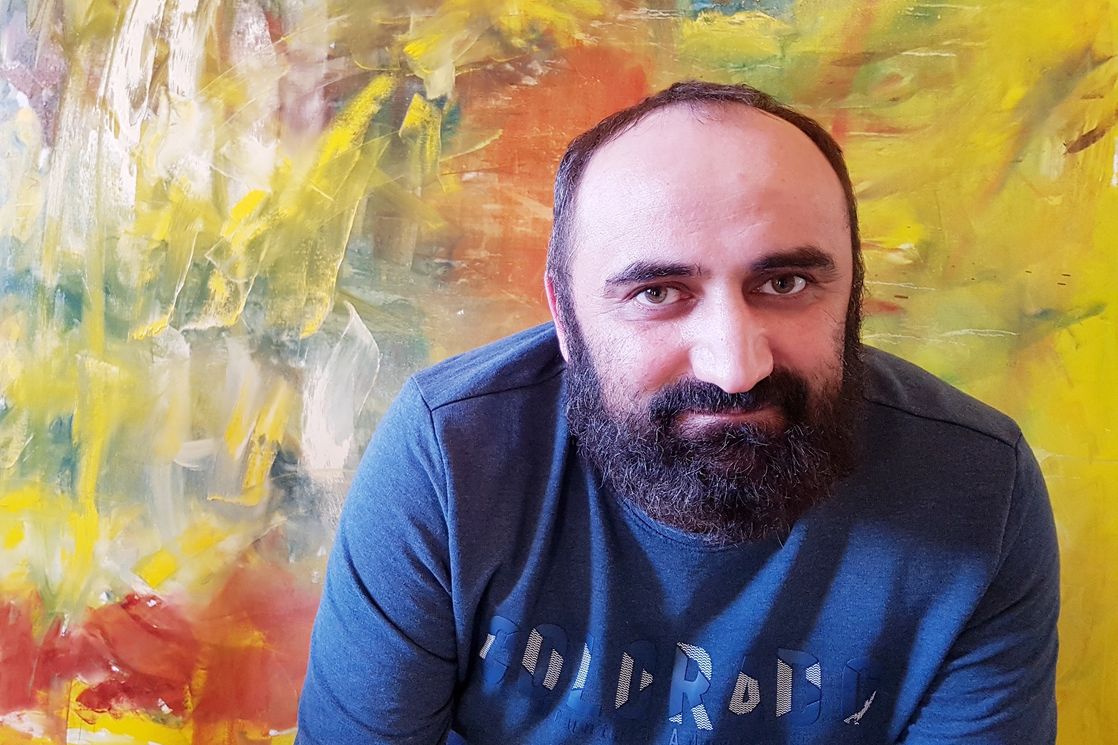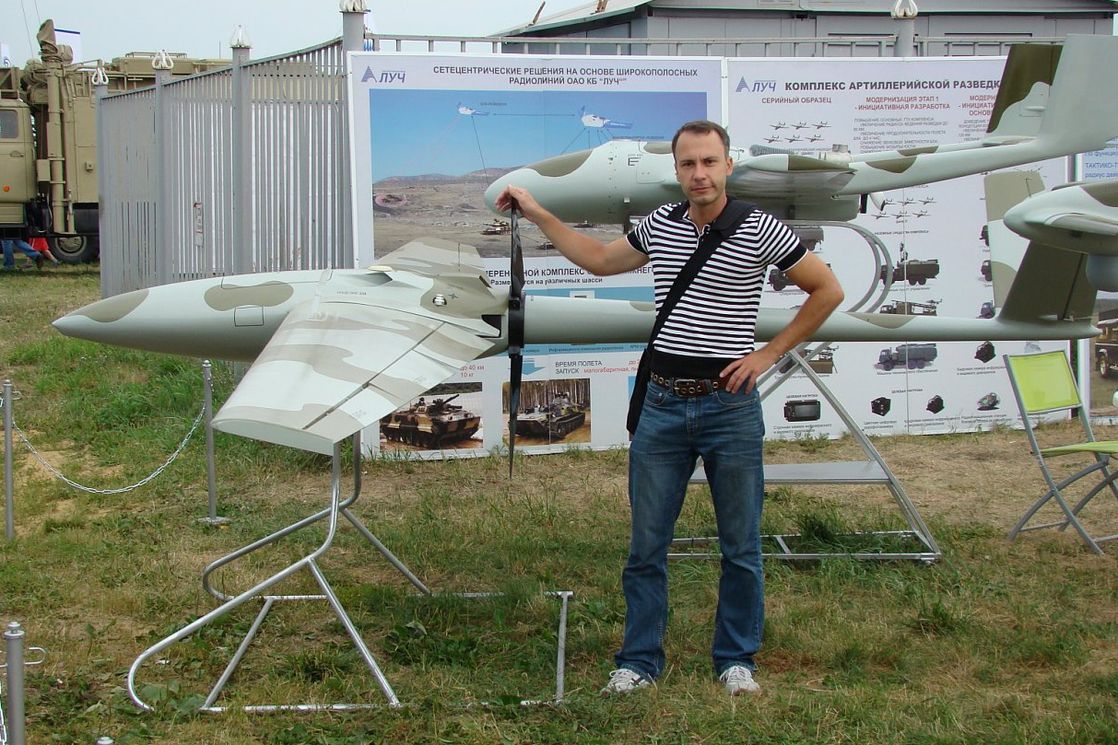‘It Is a Good Time to Try to Make the “Space Dream” Come True’

How to bring together artificial intelligence, robotics and art? Will a robotic artist be commercially successful? Does the state need private space companies? What difficulties can entrepreneurs who decide to pursue Elon Musk’s path expect? Graduates of the HSE Department of Innovation Management have tried to answer these and other questions. At their theses defence, Davit Meliksetyan and Alexei Baskakov presented their studies on ‘Start-Up as a Thesis’ about creating one’s own business projects. The HSE News Service talked to the graduates about the topic of their theses, and their relevance and potential for the future.
Davit Meliksetyan, ‘Science Art Project as a Start-Up: Creating an Innovative Business at the Intersection of Art, Robotics and Artificial Intelligence’

The idea of the project is to create an anthropomorphic robotic artist, who is able to learn from the global artistic heritage and using AI, will form its own painting style using oil or acrylic paint on canvas.
The end product will be paintings for sale, for which there is a potentially huge market. Compared to a contemporary human artist, a robotic artist would attract much more media attention and, accordingly, increase sales.
Why did I chose this topic? It was at the intersection of my interests (start-ups, AI, robotics, art) and evolved naturally, as a science project idea which has the opportunity for commercialization. I would like to mention that two remarkable female artists have recently revived my interest in art: my classmate, science art expert Elena Demidova, and the endlessly inspiring Armenian artist Anna Anouk Soghomonian. I also need to thank our teacher and tutor Evgeniy Savelyonok, who helped me sort out my mess of scattered thoughts and ideas, as well as assisting me in choosing and formulating the topic, and my academic supervisor Timofey Golovin, who helped me to get a new perspective on many aspects of the project and to fine-tune it.
My project is an attempt to use art as a lens for understanding the place and role of robots in our world, the opportunities and challenges they bring along with rapid progress in engineering and social robotic studies
But since my profile is ‘Research, development and innovation management’, and profit is one of the main motivators in the development of technology, I focused not on the artistic concept, but on the opportunity to build an innovative business, based on the idea of an anthropomorphic robot and the application of AI. In addition to generating cultural value and implementing business goals, the project will use an artistic perspective to look at the emerging aspects of human-robot interaction and review their place and role in our world.
I am definitely going to launch this start-up, since the financial model developed as part of my thesis has forecasted a lot of potential for this project, even under a conservative scenario. I am currently fine-tuning the project and trying to attract investment. I am also launching another project, the idea of which came to me when I was already writing my thesis, when I was analysing trends in the art market. This is a web marketplace and a mobile app for selling paintings by contemporary artists which follows the Dutch Auction method. The project will be launched within a month, but today, potential users can already register their interest on dropartmarket.com, in order to be one of the first to learn about the project launch and get the best paintings at low prices. I would be happy if my HSE colleagues supported this project from the start.
Alexei Baskakov, ‘Prospects for Russian private space industry development through the example of an innovative space start-up’

In my project, I look at two main areas: an innovative space start-up as a project, and the private space industry as my research area. The main idea of my thesis is to put the start-up project in the context of a promising innovative industry development scenario. I needed a kind of experimental study of the real existence of a ‘private space programme’ and the potential for its development in the country, via a detailed look at the stages of launching a start-up, and building an innovative industry development scenario, with a projection of the roadmap stages of the start-up development.
Speaking about the relevance of the project, the space industry at large includes lots of fields: not only the commercial part, but also philosophy, a kind of visionary quality, in a search for the meaning of existence, as well as lots of combinations of various fields of science and technology. Today, this sphere — the private space industry — is evolving and getting considerable public attention. For the state, building relations with private companies in such a heavy-weight area as space exploration (including defence issues) is a new process and, as such, it is still at the design stage and requires a timely and reasonable response to this private space industry trend. This area is also new and complicated for the business community, since the space industry is global, and the competition is also global. At the same time, space is highly relevant today in terms of entrepreneurial interest: public industry is changing, the private one is evolving, and there are no actual entry barriers. In addition, the state is interested in stimulating the emergence of private space companies. I believe that now is a very good time to try to make the ‘space dream’ come true.
Today, the private space industry in Russia is forming its ideology, linking its tasks with those of Roskosmos; legislature and regulation are evolving, which will affect its existence and development. Of course, some pioneers have come to this field already (Dauria Aerospace, Sputniks, Kosmokurs), but judging by the results, these initial experiences were quite problematic. At the same time, these companies have revealed many of the difficulties that the state is trying to overcome today.
Private space company development is an opportunity to solve a wider range of tasks in space, competition (which means decreasing costs), attracting investment, and in some sense, a chance for ‘crazy ideas’, those breakthrough innovations which would be able to maintain progress and interest both in the industry and space exploration at large
My start-up project is focused on a slightly different space exploration paradigm, industrial space. In many ways, this concept started evolving back in the 1980s, and I believe that it is high time to blow the cobwebs off it. The goal of my start-up is to create a launch vehicle that will provide new opportunities for space access and space activities (placing freight into orbit, returning freight from orbit, space vehicle maintenance in orbit). Formally, the project has already been launched, since in order to defend my thesis as a start-up, I believed it necessary to register it as a legal entity. It is a hard task to implement a cutting edge idea, but this makes it thrilling and I am going to ‘fight’ for my start-up’s life. The main difficulty is to find real likeminded people at this stage, but I believe we will be able to do it.
Is there a lot of potential? There definitely is. At least, the positive attitude of my teachers and classmates, the discussion of the idea and the start-up project at Roskosmos and their positive attitude have all given me the confidence that I can and need to further pursue this project. In fact, the goal of my project is not only a space vehicle, but building a company, realising the start-up ideology, and attempting to create a new brand in the private space industry.

